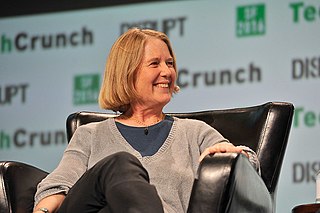A Quote by Margot Lee Shetterly
My dad worked with Mary Jackson very closely at one point. I knew Katherine Johnson as well. They were all part of this group of black engineers and scientists within this larger NASA community.
Related Quotes
I talked to Katherine Johnson, and I tried to make it weighty by asking things like, "How as a Black woman did you do your work in NASA? They were misogynistic, and I'm sure you got called the n-word." She was just like, "Well, that was the way it was. I just did my job. I wanted to do my job." She was just so humble.
Katherine Johnson actually integrated the public university in West Virginia. And Mary Jackson had to petition state courts to be allowed to attend an all-white college to get the qualifications needed to become an engineer. At every turn, these women were involved in the Second World War, the Cold War, the civil rights movement.
I understand how difficult it can be for an African-American in today’s society. In fact, I can relate to black people very well indeed. My ancestors once owned slaves, and it is in my lineage to work closely with the black community. However, just because they were freed over a century ago doesn’t mean they can now be freeloaders. They need to be told to work hard, and the incentives just aren’t there for them anymore. When I’m president I plan to work closely with the black community to bring a sense of pride and work ethic back into view for them.
We need to be very thoughtful about how we propose to spend the money that NASA does have for space exploration. And we need to be clear that there's the human spaceflight part of NASA, and there's the science space part of NASA, and there's also aeronautics. Those are all very different things that NASA does.
One of the facets of growing up the way I did, I never had the experience of being solely in the black community. Even my family, my mother is what they call Creole, so she's part French, part black, and grew up in Louisiana. It's a very specific kind of blackness that is different than what is traditionally thought of as the black community and black culture. So, I never felt a part of whatever that was.
I would say I'm black because my parents said I'm black. I'm black because my mother's black. I'm black because I grew up in a family of all black people. I knew I was black because I grew up in an all-white neighborhood. And my parents, as part of their protective mechanisms that they were going to give to us, made it very clear what we were.
When you are portraying a person that is very real, in my case, Katherine Johnson is still alive, she is 98-years old; there is a responsibility to get it right. I guess the biggest thing that I took away from Katherine was her humility. When you talk about superheroes there are selfless, they don't think about themselves, they put humanity first.
Within the lesbian community I am Black, and within the Black community I am a lesbian. Any attack against Black people is a lesbian and gay issue, because I and thousands of other Black women are part of the lesbian community. Any attack against lesbians and gays is a Black issue, because thousands of lesbians and gay men are Black. There is no hierarchy of oppression.
With Black Lives Matter, we knew from the very beginning that it wasn't just going to live online. We were like, 'We're creating this thing and then it's also going to live with black folks on the street and protests and organizations.' It was very important for us to use the hashtag as a way to have a larger conversation and as an organizing tool.
The beauty of the literary art, the grappling with the black church, the wrestling with one's identity in the bosom of a complicated black community that was both bulwark to the larger white society as well as a threshing ground, so to speak, to hash out the differences that black people have among ourselves.
It used to be that the working class, broadly speaking - Americans who worked with their hands, who worked in factories, who were not in management - were an interest group, a political interest group. And their main spokespersons were the Democrats. Their platform was the Democratic Party. And that began to change after the 1960s. Not for black or other working class Americans, but for white working class.



































